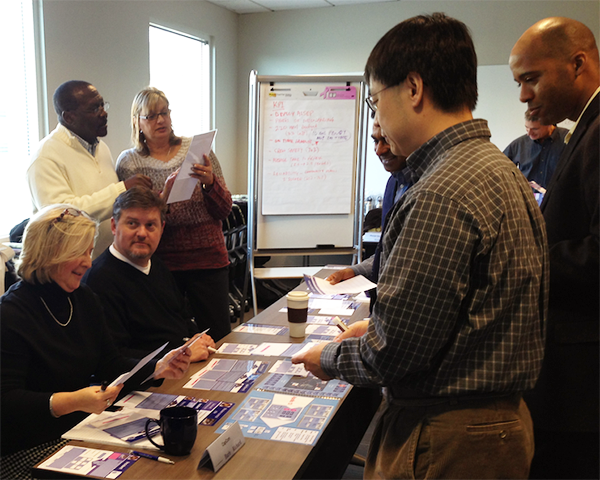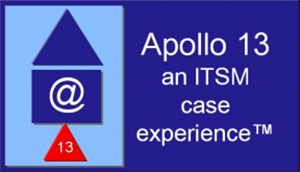
Emory’s HR Manager Development Program?
Check.
ITIL v3 Foundation Certification?
Check.
But have these courses and curricula made a real and lasting difference to our UTS managers?
Well, that’s the real question, isn’t it!
To try and connect the dots by transforming theoretical knowledge into practical usage, UTS has begun its own Manager Development Program (MDP). Even without reviewing dozens of books, articles, and Executive MBA syllabi, I think we can all agree that a great UTS manager should have both technical and non-technical skills and competencies. More specifically, however, Brett Coryell (UTS) and his Leadership Team believe all of our managers should be excellent writers, speakers, and facilitators. And the one thing those three skills have in common is that they require intentional and frequent practice practice practice.
Last week, our entire management team began their MDP journey with a trip to the moon. Led by Jan Schlit from Gaming Works in the Netherlands, two groups of eleven managers spent an entire day in an Apollo 13 simulation: refreshing their knowledge of IT Service Management best practices, remembering how interdependent we all are, and realizing how critical it is to reflect and track ideas for continual improvement.

Now the MDP gets down to nuts and bolts.
On Wednesday, all the managers and directors will attend a one-day Visual Story Workshop led by the same firm that helped Steve Jobs revise his presentation style. With laptops specifically prohibited, this won’t be a class on how to make a better slide, but on how to tell a compelling story and, just as importantly, how to give useful feedback to other story-tellers. Just a few weeks later, the monthly sessions begin. One Wednesday each month, managers will meet together for two hours, followed by our already-occurring one-hour “UTS Coordination Team” meeting comprised of both managers and directors.
During the first two hours, managers will receive refresher training on things like vendor/bid management; hiring/interviewing; performance improvement/terminations; financial budgeting/forecasting; contract management/negotiation; root cause analysis; IT service and application ownership responsibilities; quantitative analysis techniques; and current issues in higher education and academic healthcare. But the heart of these sessions is the practice of their own skills: managers will have short reading assignments each month; some managers will be assigned to write an IT Newsletter item based on those readings; and then during each monthly session, two other managers will each give a 10-minute presentation on topics chosen ahead of time that encompass that month’s reading assignments. After each presentation, there will be a short time for feedback, then each member will present their story again to not only the managers, but to the directors that will have joined them for the third and final hour.
Running from February through December, this 11-month program will give all of our managers a chance to hone their essential skills while continuing to learn and review the practical competencies that define a great UTS manager. If you’d like to know more about how this program was developed or specifics about what will happen when and why, please email me. In the meantime, look for an online survey that will give all UTS staff a chance to say what specific and observable behaviors we’d like to assess in our managers. These survey results will not only give a current and honest appraisal of managers, but will help determine what other valuable types of training we can add to this curriculum.

Leave a Reply